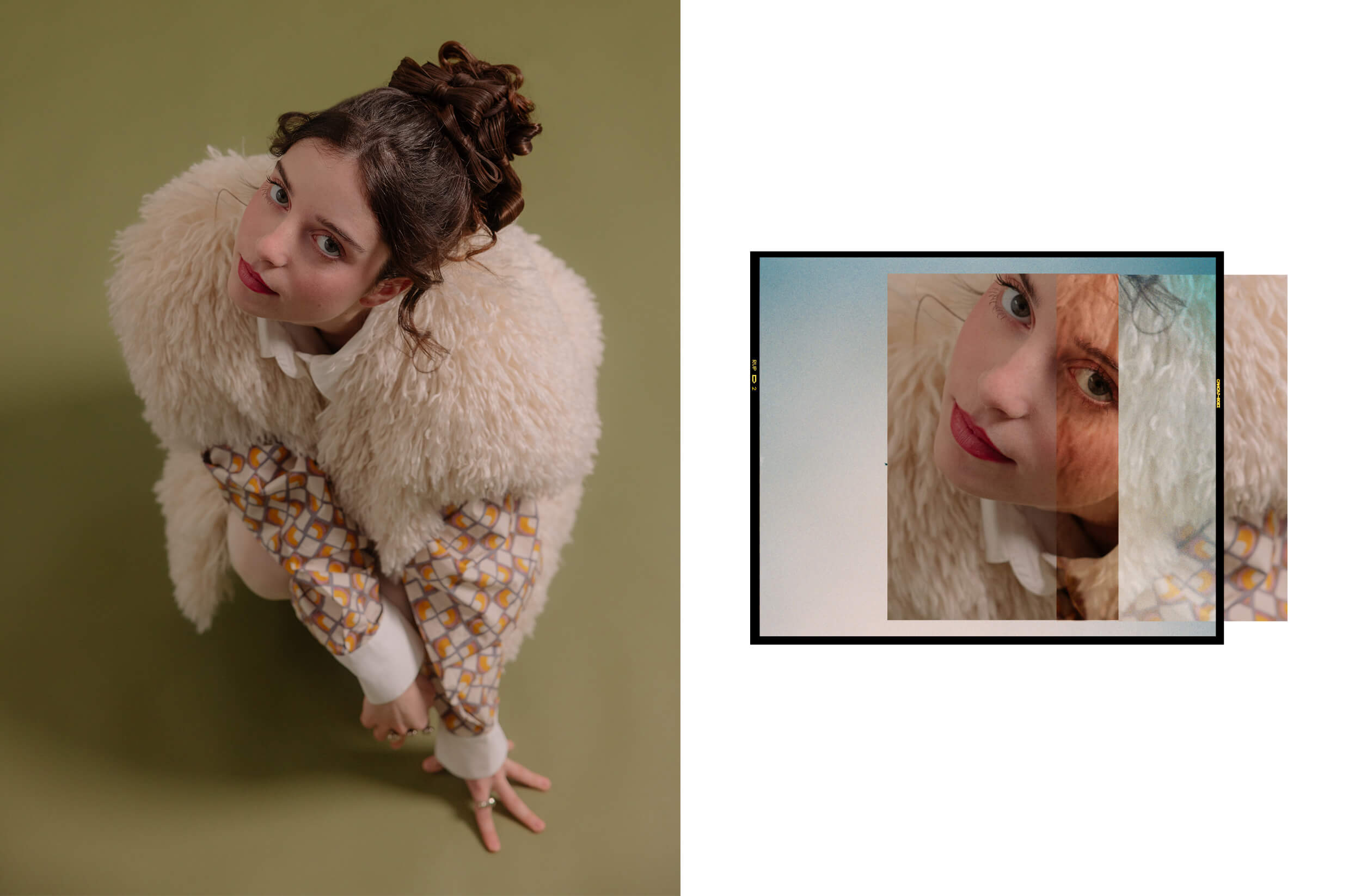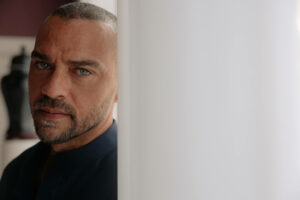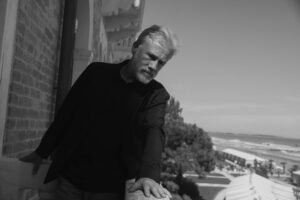There’s something special about Ginevra Francesconi: a rare kind of sincerity, the kind that comes through her eyes even before her words. We met her, photographed her, and later interviewed her during a pivotal moment in her career – her coming-of-age film, “Una Figlia” (A Daughter), by Ivano De Matteo. Ginevra is our May Cover Story and of the film, in which she plays Sofia, a girl torn between pain and a yearning for redemption. Over the phone, she spoke with honesty and clarity about the journey that led her to play such a complex and nuanced character. She also shared what it means to grow up in the film industry, constantly shifting between different roles and new forms of self-awareness. Ginevra spoke to me about the set, her family, the greenery that brings her peace, and what makes her feel safe—all in that authentic, reflective tone that defines her.
This interview gave us a chance to get to know the most genuine version of Ginevra, on and off the set.
What made you fall in love with cinema enough to make it a career?
It was a very slow, very organic kind of love—probably because I started as a game. That kind of playful first approach is what made me fall in love with acting, I think, because I’ve always experienced it as pure fun, passion, play. Even now, I still see it that way. Of course, over time you grow up and start to feel the weight of it more deeply, but at the core, that playful spirit remains.
Let’s talk about Una Figlia. Your character is complex and layered: Sofia is marked by a symbiotic relationship with her father and a “negative” reaction to his new relationship. How did you prepare for such an intense role?
Roles like this often require a lot of rehearsals. Ivano [De Matteo] was essential in that regard because before we started filming, he had me rehearse extensively with Thony, Stefano [Accorsi], and Michela [Cescon], first to get to know one another, to listen and observe each other, and then to “play.” We studied the scenes, we practiced them so we’d be fully ready on set, even technically, since the film was shot on film stock.
Music also helped me a lot, along with the director, whom I fully trusted. Ivano is incredible because he takes you exactly where he wants you to go—he communicates his vision so clearly that he makes the work feel “easy.”

What immediately drew you to Sofia when you first read the script?
What intrigued me at first was that Sofia is a “normal person.” Despite the trauma of losing her mother, she’s not a problematic girl. I was drawn to her psychological journey in facing that trauma, the trauma of a girl who’s almost like me. In her case, processing the trauma involves constantly suppressing her feelings toward her father’s new partner.
I was also very curious about exploring a world I didn’t know at all—prison life, community homes—which I really knew nothing about. I learned a lot even before stepping on set, thanks to the incredible people I had the honor to meet for this film: social workers, educators, lawyers, and young people who had been through similar experiences.
In the film, Sofia expresses intense emotions like anger, jealousy, and pain. What were the biggest challenges in portraying those emotional layers?
The biggest challenge was the prison scenes. In the first part of the film, Sofia goes through emotions that are easier to access, even for the average person, because they’re more relatable. But in the second half—set in juvenile detention—the emotions I had to explore were different, more complex. The courtroom scene, in particular, marks the start of the film’s most intense moments.
I can imagine—and so many scenes from that second half come to mind.
Yes, definitely. But I listened to the advice of those who knew more than I did, and I hope I was able to make it all feel as real as possible.
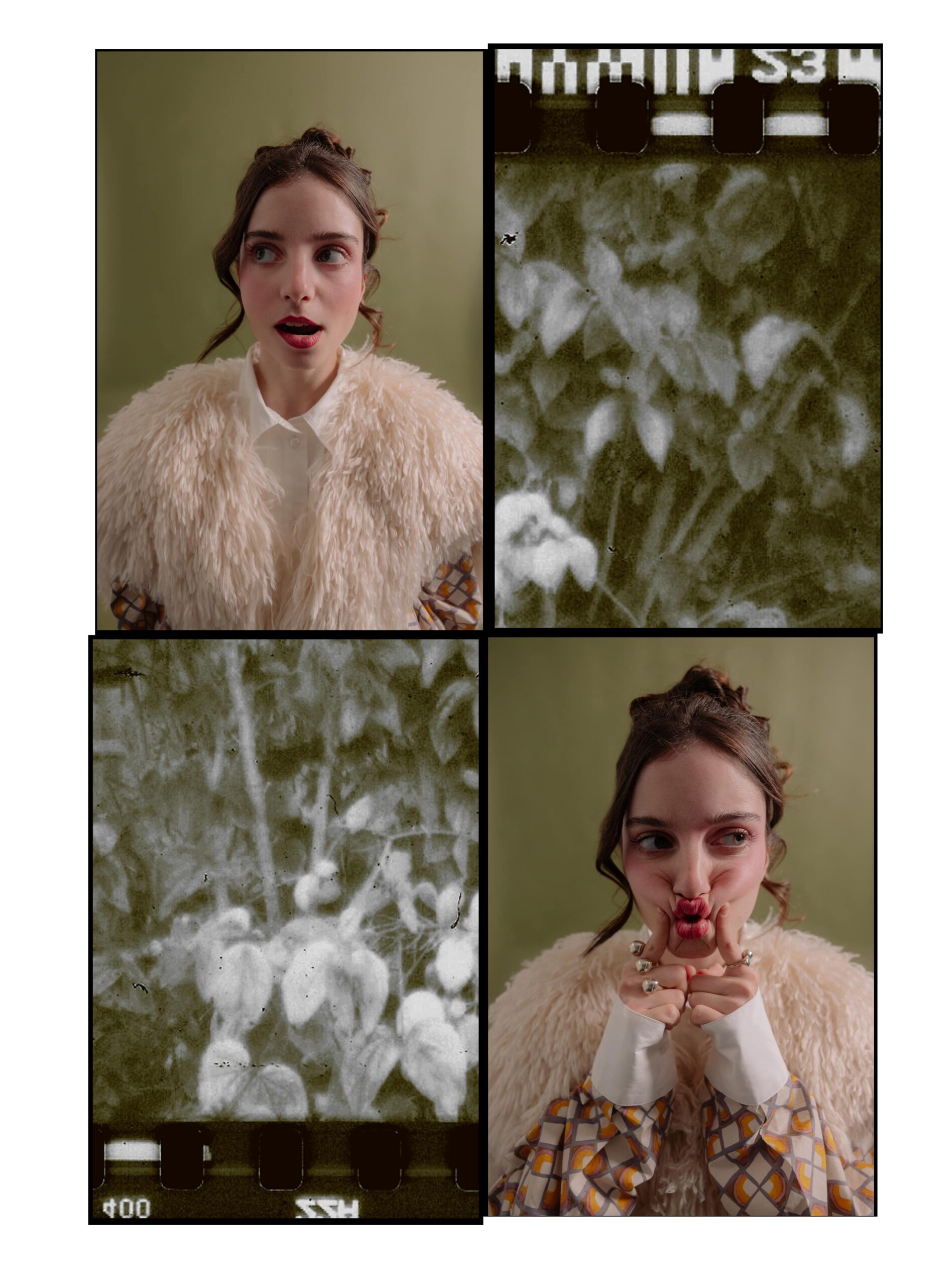
“The trauma of a girl who’s almost like me“
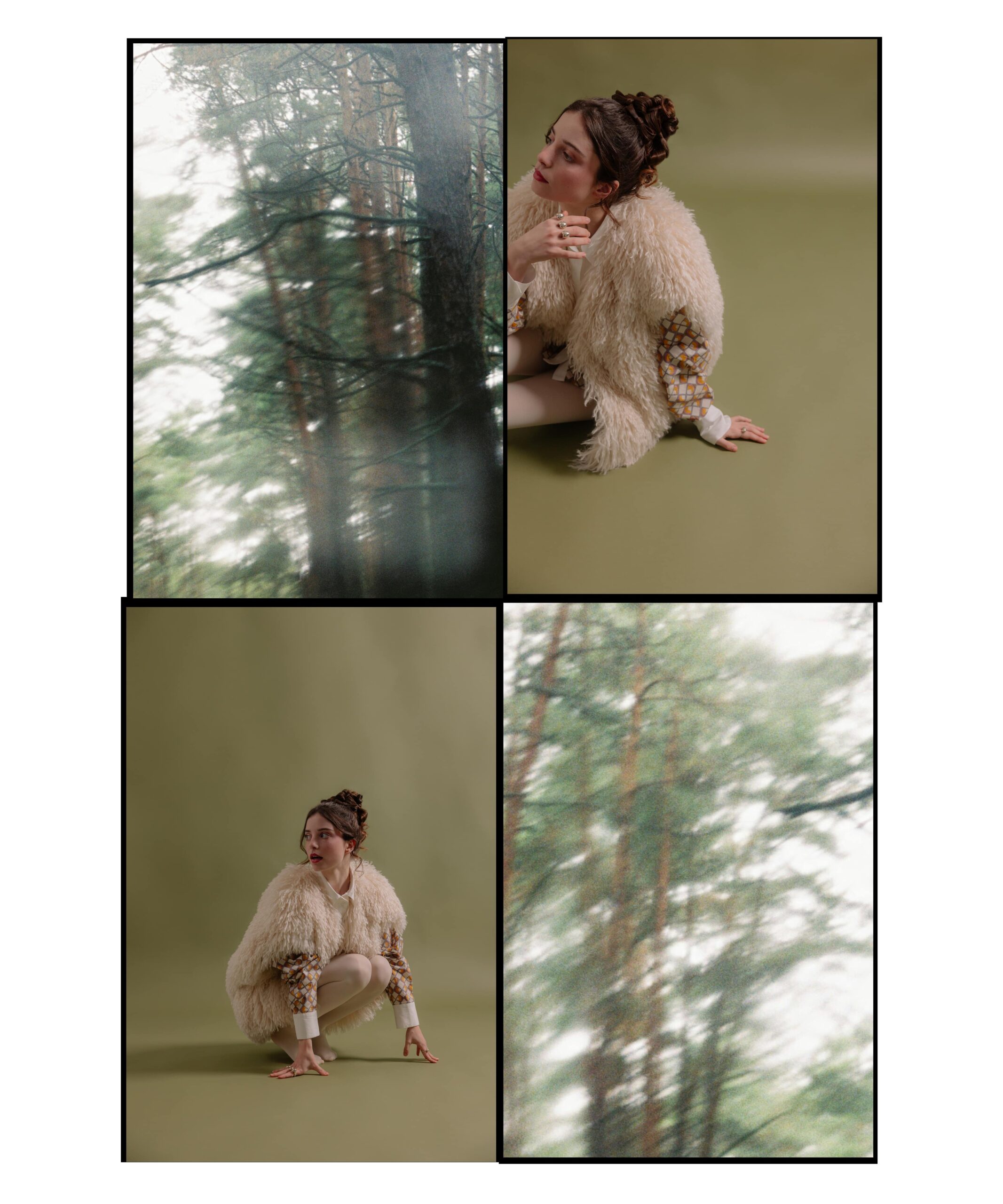
Without a doubt. This story doesn’t offer easy answers, but invites us to reflect on deep, often moral, questions. How do you think the audience will respond to Sofia’s story—with empathy, judgment, or understanding?
Speaking as a viewer, the first time I saw the film, I looked at the story from entirely new perspectives compared to when I was filming. What struck me most as a viewer was that there’s no judgment passed on this character. Even in the script, there’s no space for judgment—Sofia remains a victim throughout.
There are many layers for reflection: the father-daughter relationship, processing trauma, feeling isolated in different moments. Sofia feels distant from her father because of the presence of this third person, his new partner, who disrupts their daily life. So she feels alone in her adolescence—and also alone in prison. But she eventually finds ways to silence that loneliness and search for light.

Is there something you and Sofia have in common? How did you bring her closer to yourself to humanize her for the audience?
We share a personality trait that I especially recognized in myself when I was younger, around 16 or 17—Sofia’s age. Back then, I reacted to things very differently. I used to suppress my emotions much more severely, and I saw that same trait in Sofia. Her reaction to events isn’t instinctive; she suppresses her feelings until, eventually, she explodes in the worst way.
I was a very reserved girl, very closed off. But after adolescence, everything changed. Now I’m much better at expressing my emotions, even the deepest ones. But to play Sofia, I had to tap back into that teenage phase of my life.
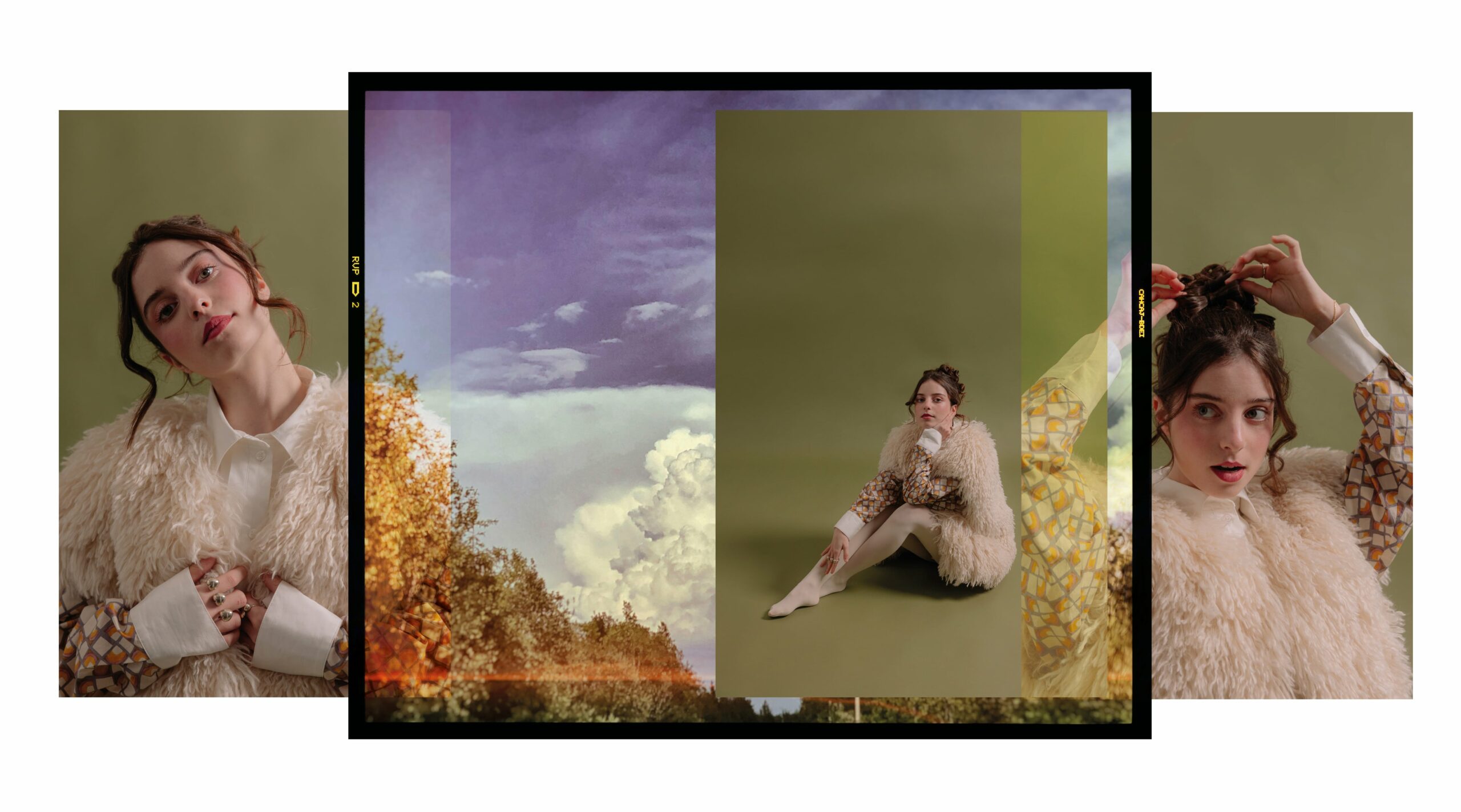
I was really struck by the prison sequence we talked about earlier—especially Sofia’s reaction to the sudden turn of events and the inevitability of the consequences. Was there a particularly hard or powerful scene for you to film? How did you approach it, personally and professionally?
The most emotionally and professionally challenging scenes for me were the body searches. To prepare for those, I sought help and advice from social workers and young people who had lived through that experience. I felt, for the first time, deeply and viscerally connected to that world. I empathized on a much deeper level with what a girl going through that might feel. After filming those scenes, I felt “free.”
Maybe the discomfort you felt during those moments helped you express the same discomfort Sofia must have felt—both stripped of everything.
Definitely. That’s why I felt completely in sync with my character.
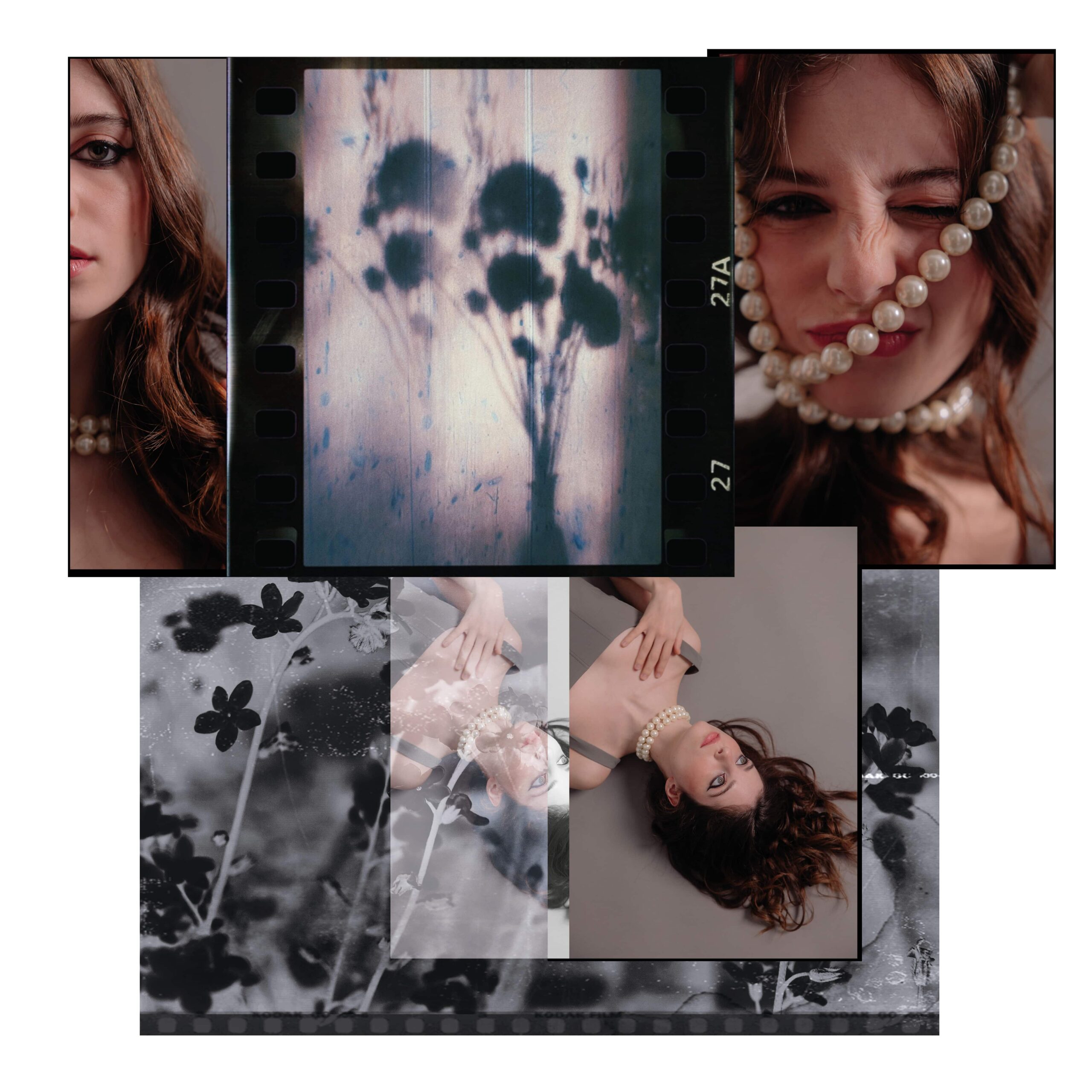
As we said, the film raises profound questions about forgiveness and the complexity of family relationships. What’s the main message you hope the audience takes away?
I think the main message is how people who end up in places like juvenile prison or community homes come from all kinds of backgrounds—and how everything is relative, even within privileged contexts.
The story invites us to be careful not to judge others too quickly and reflects on forgiveness, which of course is a deeply subjective concept. The film leaves space for each viewer to form their own opinion.
If you could, ideally, speak to Sofia directly, what would you say to her?
I’d probably just hug her and say I’m sorry—for everything she couldn’t express.
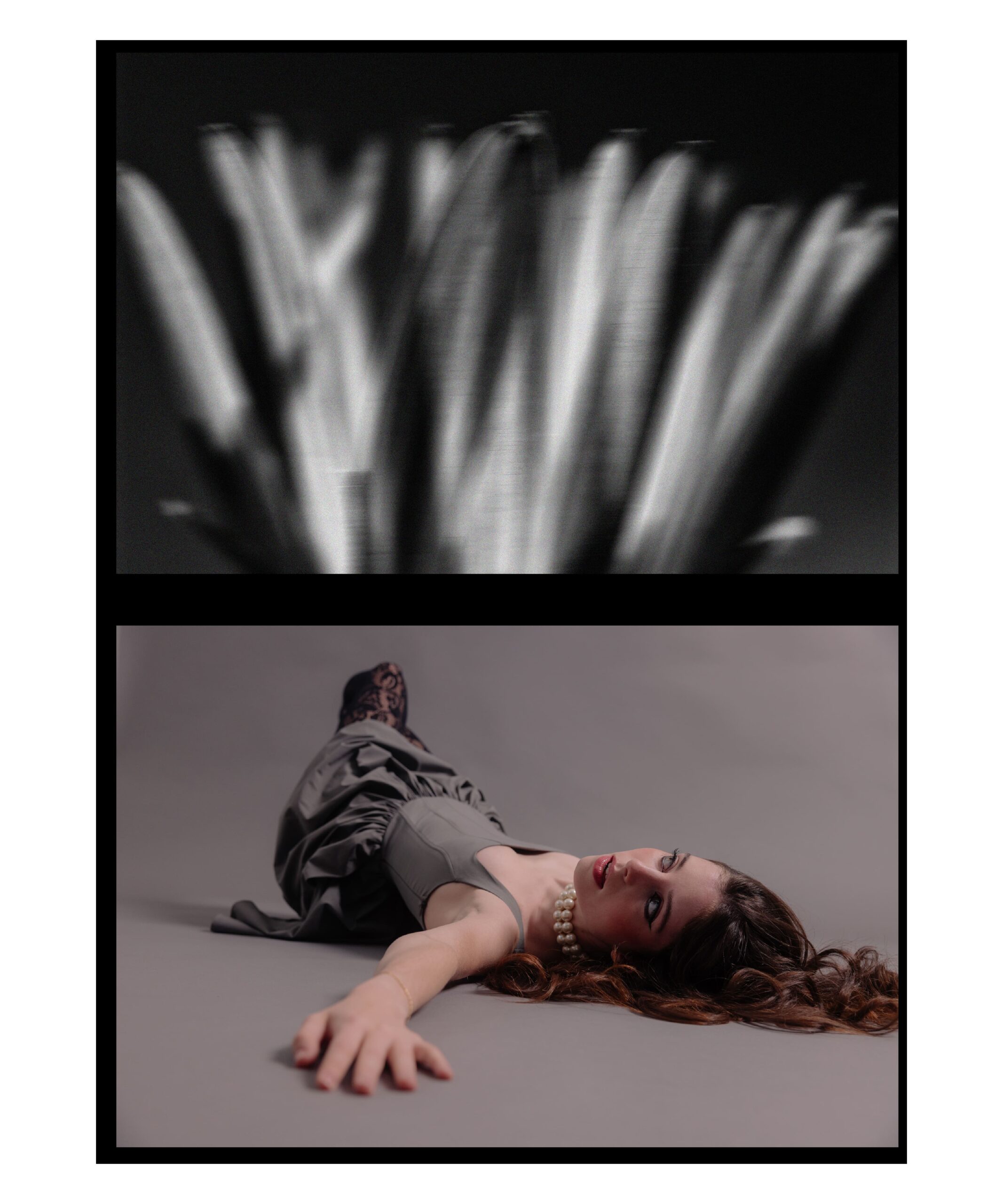
“The story invites us to be careful not to judge others too quickly and reflects on forgiveness”

You’re very young and have already played meaningful roles in films and short films. How does Una Figlia represent a turning point in your artistic journey?
I’ve been lucky to grow alongside my characters, and I hope to keep doing that. Una Figlia is definitely a project I approached with more awareness, so in that sense, I see it as an “adult” project. I gave more weight to research and preparation for the role, and emotionally, it carries great significance for me. Though honestly, I tend to feel that way with every new project. But this film gave me a sense of fulfillment that’s hard to match. I can’t wait to watch it again.
Speaking of unforgettable films—what’s the last movie or series that really stayed with you?
A series that deals with similar themes is “Adolescence”. They did an extraordinary job—I was truly speechless at many points. I was constantly on edge while watching it, and afterward, I kept thinking about it. It really moved me.
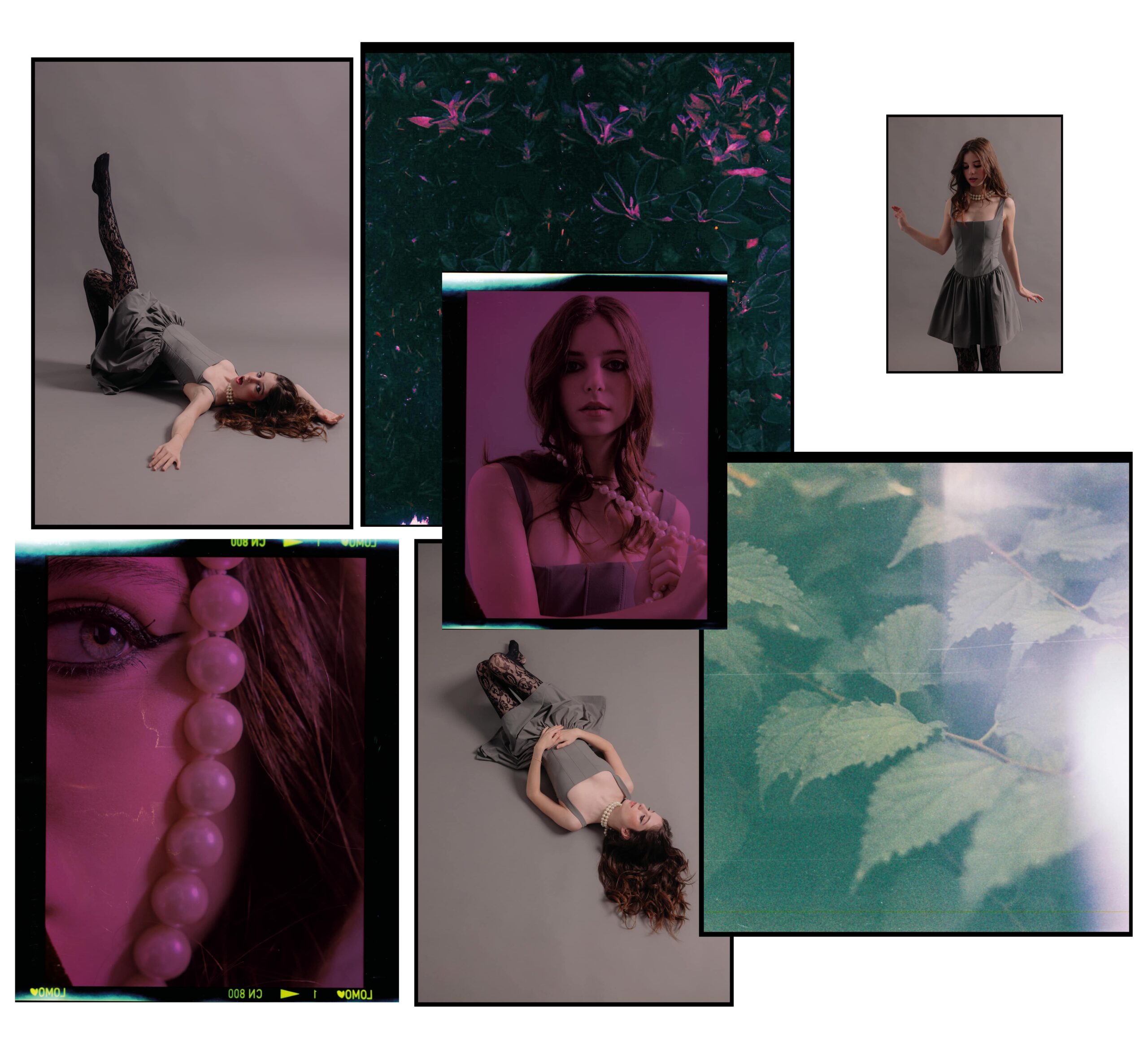
What draws you to the set, and what scares you about it?
What I absolutely love is the unpredictability of it. Everything’s always changing—scenes, people, schedules. Technically, I love learning something new each time, through new characters and stories. With Una Figlia, as we said, I learned so much about a world I didn’t know at all.
What scares me is that this unpredictability is also a double-edged sword. The very absence of routine that attracts me also scares me. But apart from that, the set has become a real comfort zone for me. I see every difficulty as a personal challenge, another step on the ladder I want to climb.
So maybe, in the end, nothing really scares me.
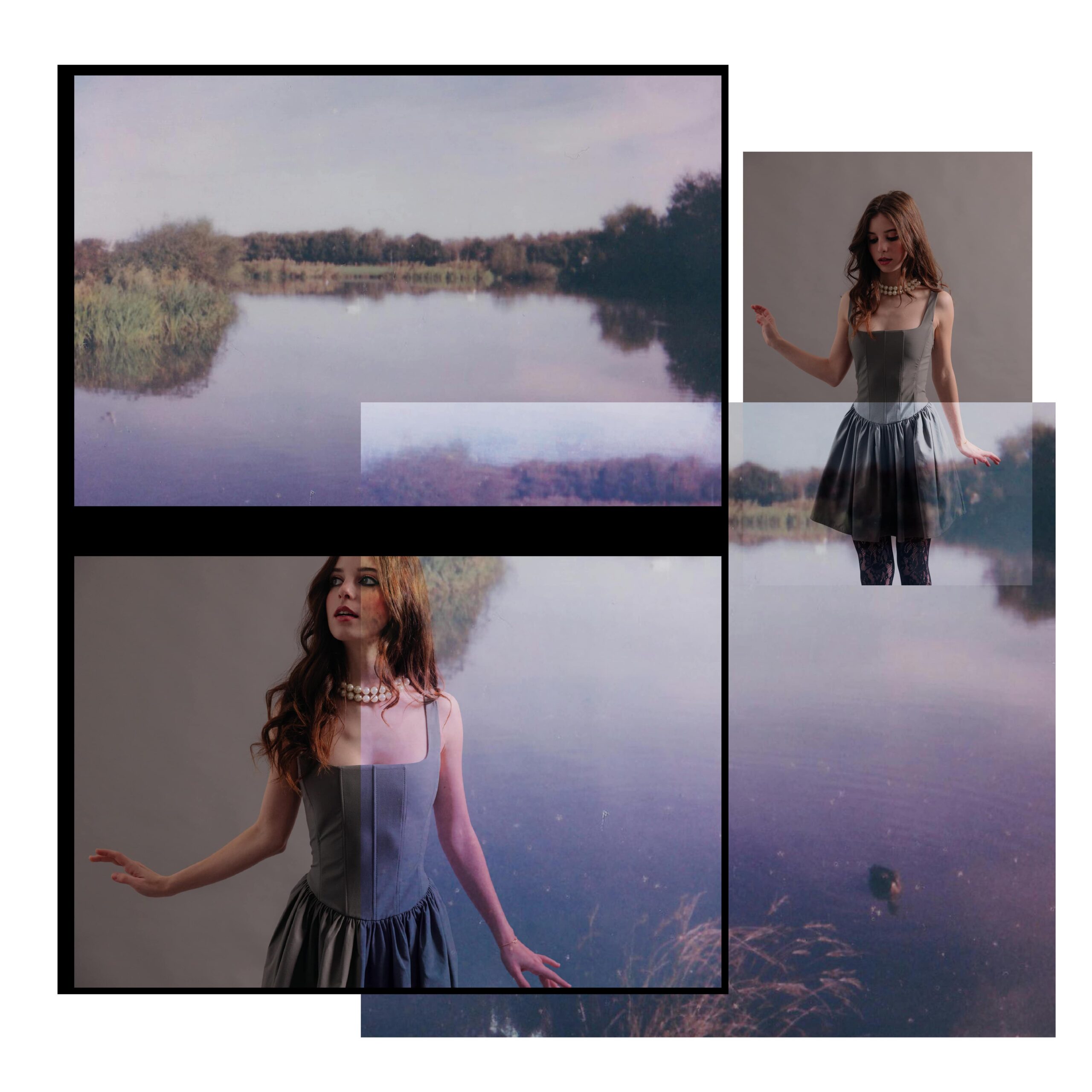
Earlier you mentioned listening to music to prepare for a role. Is there a song or album that represents this period of your life?
It changes all the time, but I’d say Bossa Nova or indie singer-songwriters. One of my favorite musicians is Cosmo. I’ve loved him for a long time, and I still listen to him—I’ve seen him live a thousand times.
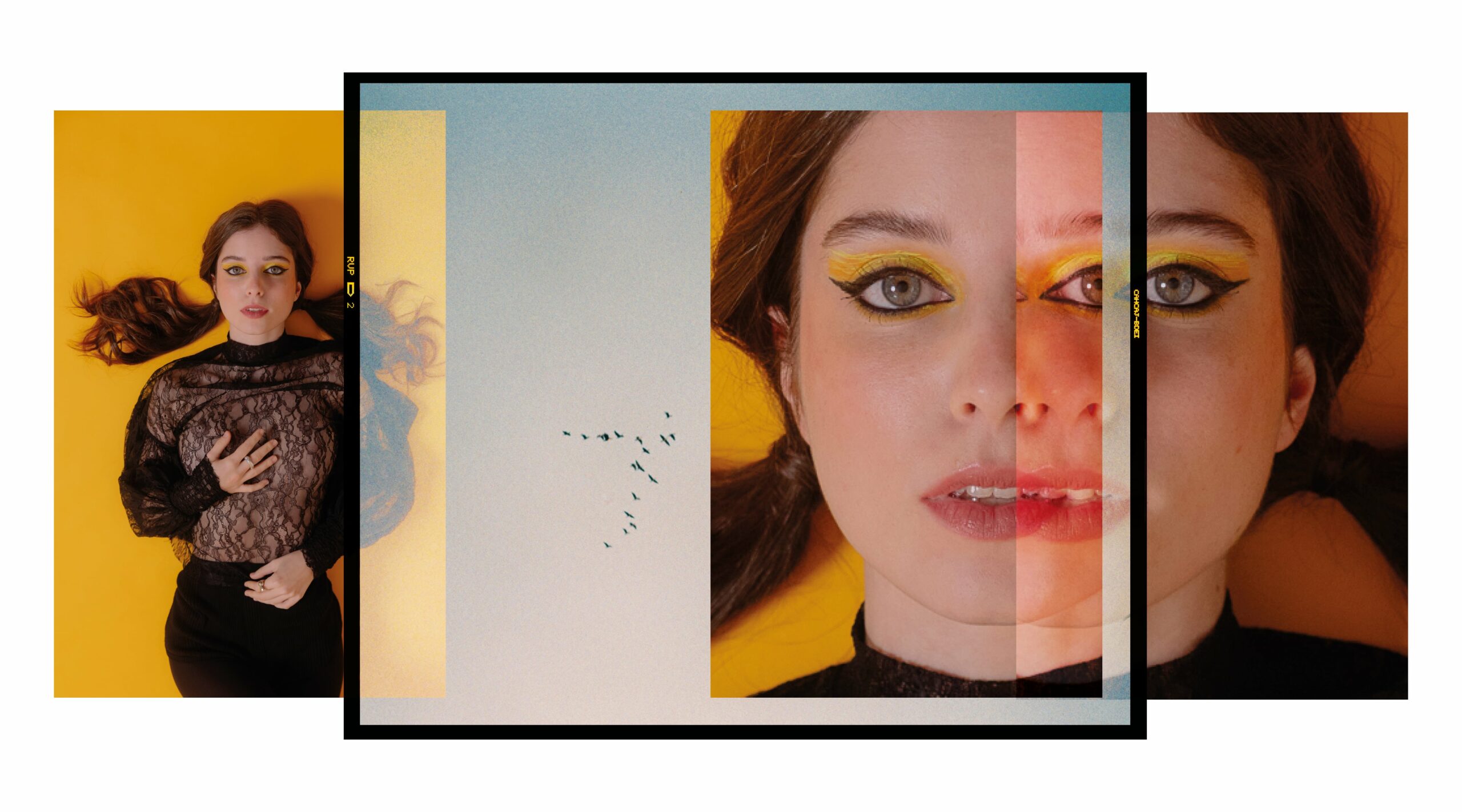
What or who makes you feel safe, and what or who makes you feel confident?
My family makes me feel safe—my mom, dad, and sister. They’re the first people I call for any advice or emotional support.
They are my rock, and I know how lucky I am.
And who makes me feel confident? The people who love me—my friends, my family again. But I’ve also been working on myself a lot, so I’d say I give myself confidence, too. Sometimes it’s important to remember that.
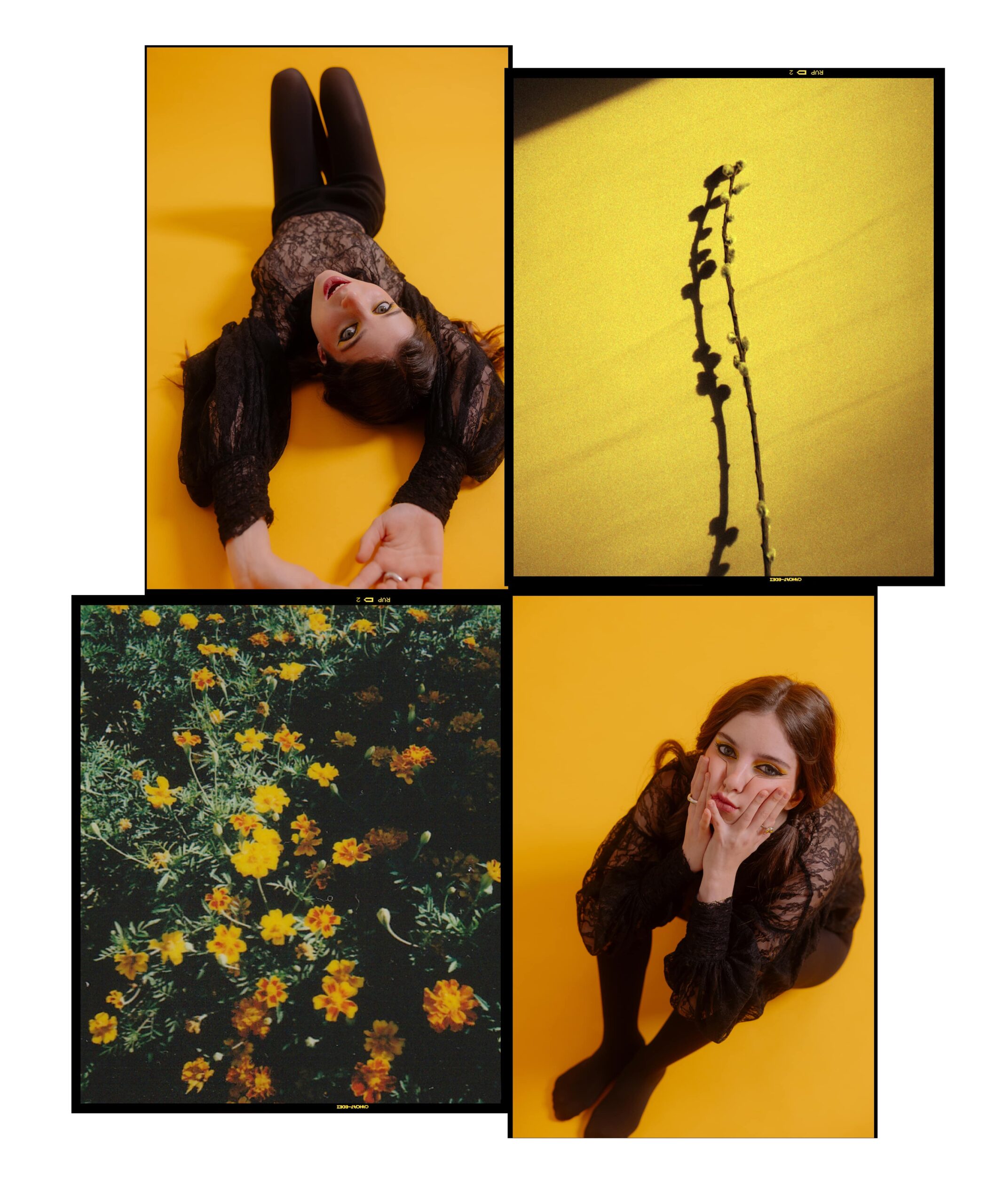
“I give myself confidence, too. Sometimes it’s important to remember that.”
Absolutely—we’re the first and maybe only people we can always rely on. So what are you afraid of?
I’m afraid of growing up and losing loved ones as time goes by. I’m afraid of the time I can’t control.
What’s the most beautiful view in the world for you?
The view from my childhood home, surrounded by hills and greenery, with sheep bleating in the background. In Sora, in the province of Frosinone. I go back there as often as I can, and now that I live in Rome, I appreciate it even more. I’ve seen many stunning views, but the one that touches me most emotionally is what I see from my window back home.

Would you say you’re a night owl or a morning person? What’s your favorite time of day?
I wish I were a morning person, but I suffer from insomnia, so I always go to sleep late and end up waking up late, too. So I guess I’m a night owl. But I love it when I manage to fall asleep early and wake up super early—it feels like the day is twice as long! [laughs]
My favorite time of day is between sunset and night, maybe because during the day my mind is racing, and at night I finally slow down and reflect on personal thoughts.
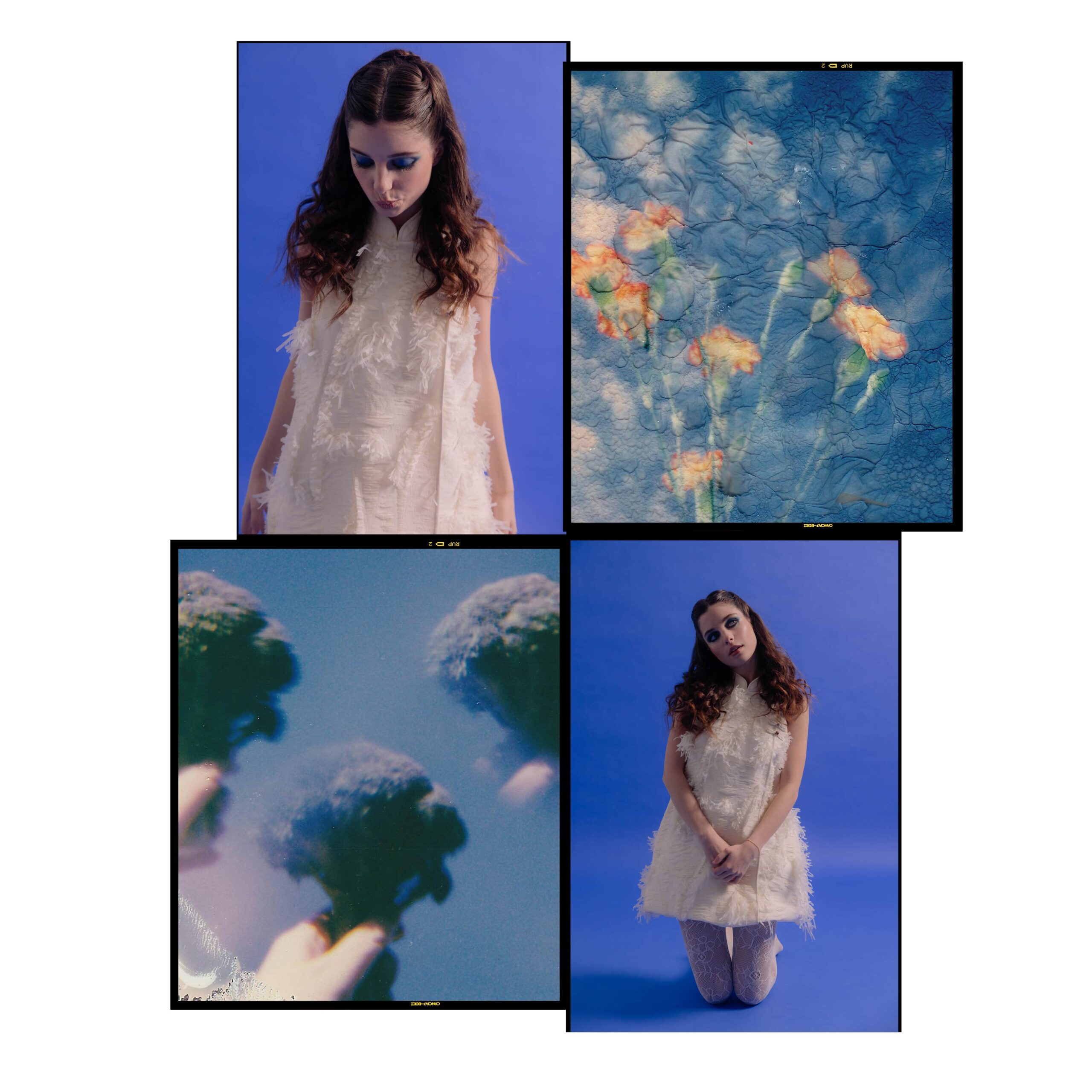
“At night I finally slow down and reflect on personal thoughts”
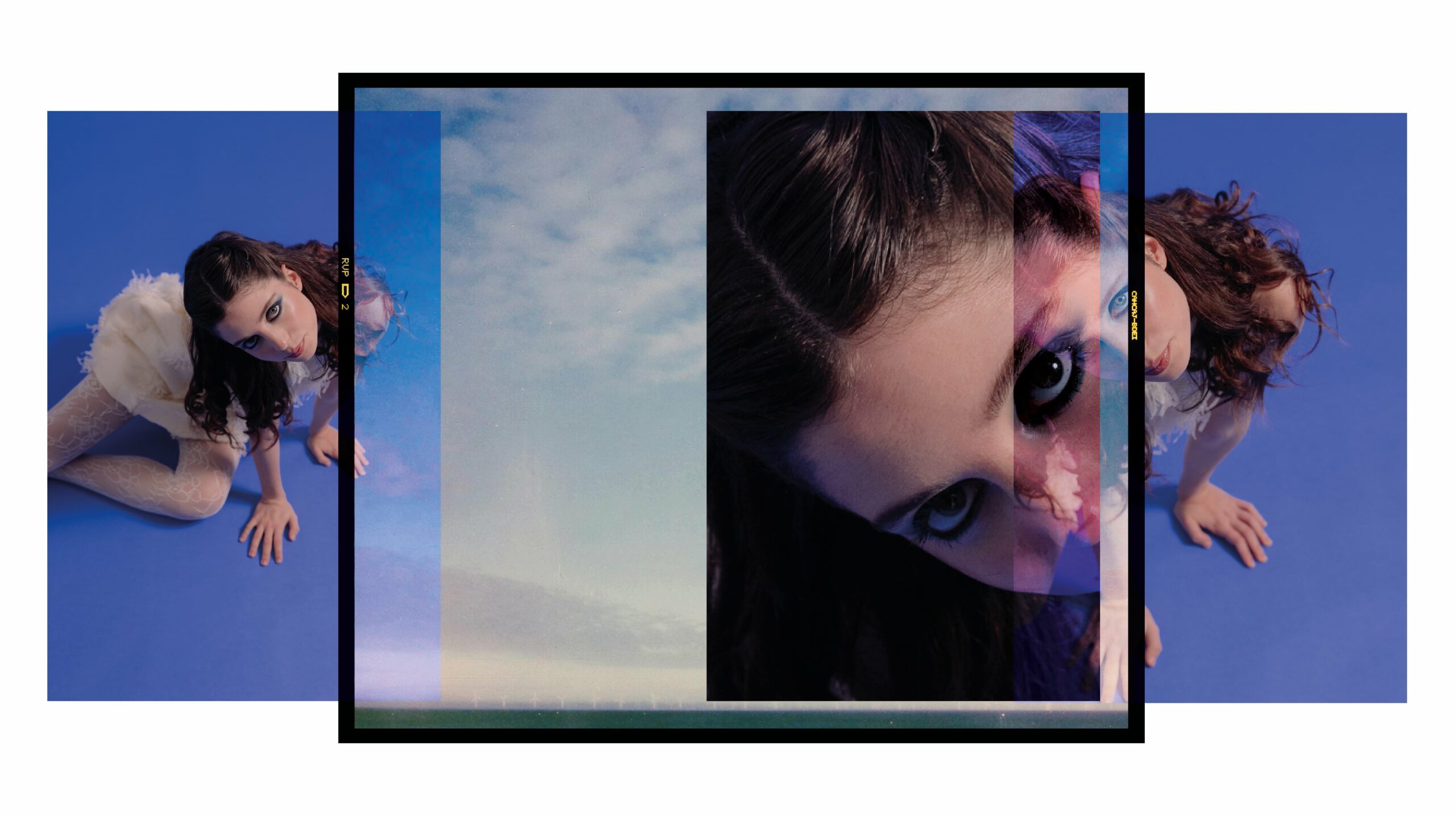
What’s the one detail that makes your day “perfect”?
Nature. For example, if I’m in Rome and I go to a park, that instantly improves my day. I need some green to be happy—maybe because I grew up surrounded by it, and I still need it to feel good.
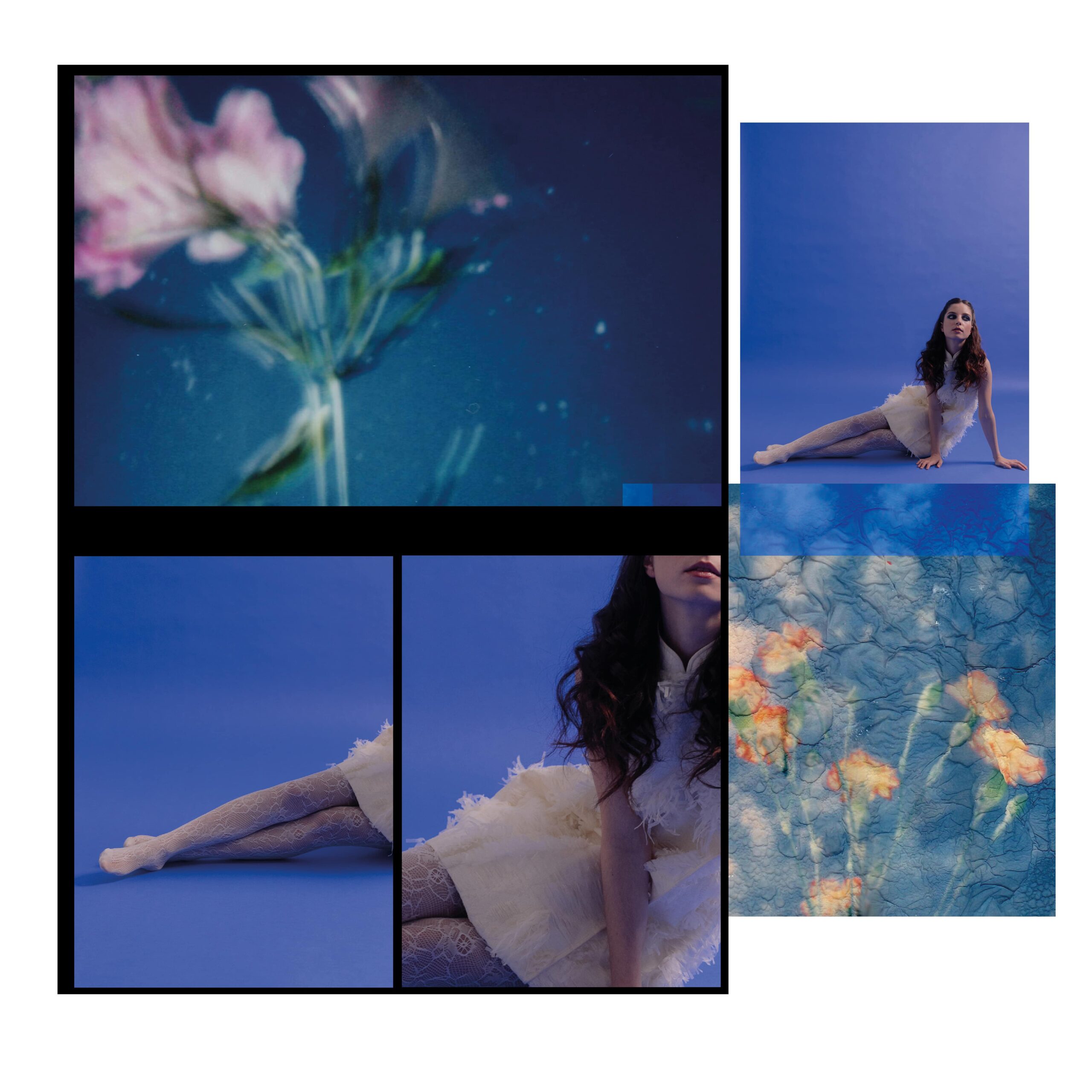
And what is “home” to you?
Anywhere in the nature, and with the people I love: my family, my friends, the lasting relationships that make me feel safe.

Photos & Video by Johnny Carrano.
Makeup by Sofia Caspani.
Hair by Camilla Oldani.
Styling by Sofia Spini.
Assistants styling: Giorgia Calia e Francesca Latini.
Thanks to Giuseppe Corallo.
LOOK 1
Blouse: La double J
Fake Fur: Krizia
LOOK 2
Stylist’s Archive
LOOK 3
Stylist’s Archive
LOOK 4
Dress: HUI MILANO

